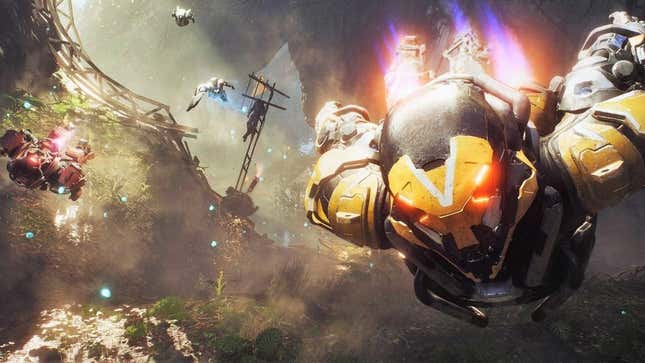
Last year, Ross Scott who runs the Accursed Farms YouTube channel posted a video about Ubisoft taking The Crew offline and not only making it unplayable for everyone who purchased it, but also revoking people’s digital copies. He used it to launch the “Stop Killing Games” initiative which calls on companies to invest more resources in keeping the games they sell players accessible in the future. It seemed to have fizzled out in early 2025, but thanks to some YouTube drama the campaign has come back to life with over a million fans voicing their support.
The resurgence began with a new video from Accursed Farms two weeks ago titled, “The end of Stop Killing Games.” In it, Scott laid out why he thought the initiative has run out of steam and was failing, laying no small part of the blame at the feet of fellow YouTuber Jason “Thor” Hall, a former Blizzard developer more commonly known by his indie studio pseudonym Pirate Software. Scott accused Hall of leveraging the latter’s big viewership to misinterpret and spread falsehoods about the “Stop Killing Games” initiative, in part by casting it as naïve and unworkable in the modern gaming landscape where always-online and server-centric releases are flopping all the time.
It wasn’t the first time Scott and Hall went into a tit-for-tat post-and-response spree on YouTube, but it may have been the most beneficial for the “Stop Killing Games” movement. Scott’s video, which elicited a fresh round of debate from Hall, netted over 750,000 views. More importantly, other big names started chiming in. Content personality Charles “Critikal” White Jr. posted about the topic in a June 24 video that hit over 2 million views, with the entire exchange becoming ripe for YouTube’s algorithm-fueled drama industrial complex.
This has all helped funnel tons of signatures into the various “Stop Killing Games” petitions floating around online, the biggest of which is the “Stop Destroying Videogames” European Citizens’ Initiative which now has over 1.23 million people listed in support, and aims to “prevent the remote disabling of videogames by the publishers, before providing reasonable means to continue functioning of said videogames without the involvement from the side of the publisher.”
The hope is that more publishers will build offline modes into their games—something Suicide Squad: Kill the Justice League recently did—or provide the tools for fan communities to support games post-shutdown, as done by the makers of Duelyst. At the very least, the goal is to prevent companies from taking away games that people already bought by revoking licenses. The stakes of the fight, including for game preservation in general, are currently on full display with Anthem, the troubled but unique Iron Man-inspired loot shooter that EA is now sunsetting in January 2026. Unless something changes, no one will be able to play it ever again following that server shutdown.
The re-energized “Stop Killing Games” campaign has even elicited a full rebuttal by the European game industry lobbying group Video Games Europe, which represents all the biggest companies from Microsoft and Epic Games to Roblox and Warner Bros. The five-page response argues that preservation protections would, among other things, place burdensome limits on game makers, lead to even more costs as game budgets are skyrocketing, and even create issues for player safety and privacy.
“As rightsholders and economic entities, video games companies must remain free to decide when an online game is no longer commercially viable and to end continued server support for that game. Imposing a legal obligation to continue server support indefinitely, or to develop online video games in a specific technical manner that will allow permanent use, will raise the costs and risks of developing such games,” the lobbying group claims. It also states that companies are already committed to “serious professional efforts to preserve video games.”
It lists companies investing in their own video game collections as one such effort, linking to Embracer’s private archive. What could be more reassuring than leaving the fate of preservation in the hands of one of the most ill-fated, acquisition-fueled gaming conglomerates in the industry?
.